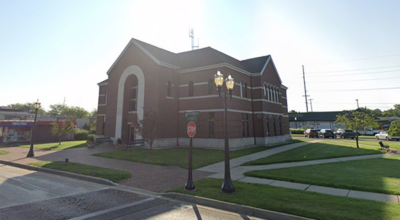Income drives changes in 2010 for Cass County Road Commission
Published 9:04 am Thursday, October 8, 2009
CASSOPOLIS – Cass County’s primary roads will receive more attention and local roads less in the 2010 fiscal year as reflected in the Cass County Road Commission’s 2010 budget.
Recent passage of the $6.8 million budget for 2010 is an increase over the $6.5 million amended budget of 2009.
It is anticipated that state and federal monies will account for $1.6 million in 2010 while $1.2 million has been targeted for local (or township) roads.
In 2009, the road commission completed $940,000 worth of projects with state and federal funds and about one half of that involved federal stimulus money that was used for the chip and seal process on primary roads.
The remainder was spent on asphalt overlays for primary roads.
The commission completed $1.7 million of work on local roads.
In 2010, $4.2 million will come from the Michigan Department of Transportation, a decrease of 2 percent from the $4.3 million received in 2009.
However, officials expect an actual 25-percent reduction in township road work for a total of $854,600.
The decrease is directly related to Michigan’s financial situation and the drop in revenue sharing that the townships are expected to receive.
With the anticipated loss of income from the townships, the road commission expects to shift its work on local roads from new paving projects into maintenance work such as chip and seal, which is substantially cheaper.
Changes in the 2010 budget over 2009, however, also involve the acquisition of new equipment by the road commission, which is expected to aid road crews in completing their work faster and more efficiently.
During the summer, the road commission will concentrate its manpower on primary roads on its “outside of the white lines” program that involves mowing, brush removal and control of brush by spraying, as well as policy changes regarding tree removal.
“We are looking at initiating a program of controlling the brush along the sides of the (primary) roads and at the intersections through a chemical spray and more effectively mowing the sides of the roads,” Louis Csokasy, the road commission’s manager, said Wednesday.
The decrease in income from work on township (or local) roads will be offset by the increase in federal highway transportation funding channeled directly into the road commission by MDOT.
“The federal programs have a richer mix for us (because) the match required by the road commission to the state is actually lower than the match that the road commission gives to townships,” Csokasy said.
The road commission provided 40 percent of the match from state highway funds to townships in 2009 (state law allows up to 50 percent), but the commission will probably reduce its match amount in 2010.
But, it is envisioned that chip and seal on township roads will be eligible for the match in 2010 by the road commission, which it was not in 2009.
“We will be proposing that change to encourage local officials to do more preventive maintenance on the local road system,” Csokasy said.
Local road work actually will be a mixture of chip and seal projects and asphalt overlays.
Chip and seal is considered the preferred method of maintenance by road commissions in Michigan because it lengthens the life of a new or newer road by five to 10 years.
Manpower at the road commission is expected to remain unchanged in 2010, although there are plans to hire six part-time workers for mowing and flagging over three summer months.
The decision will mean in increase of about $35,000 in labor costs.
Equipment purchases for winter work include three wing plows at $15,000 each.
The addition of wings on the sides of the trucks is expected to allow crews in some areas to remove road snow in one pass instead of two, thus saving time and fuel.
Csokasy said that even with anticipated changes in operations in 2010, the road commission is expected to see a decrease in overall assets of $629,200 from 2009 to 2010.
The assets reflect the value of the road system in the county, which is $31 million.






